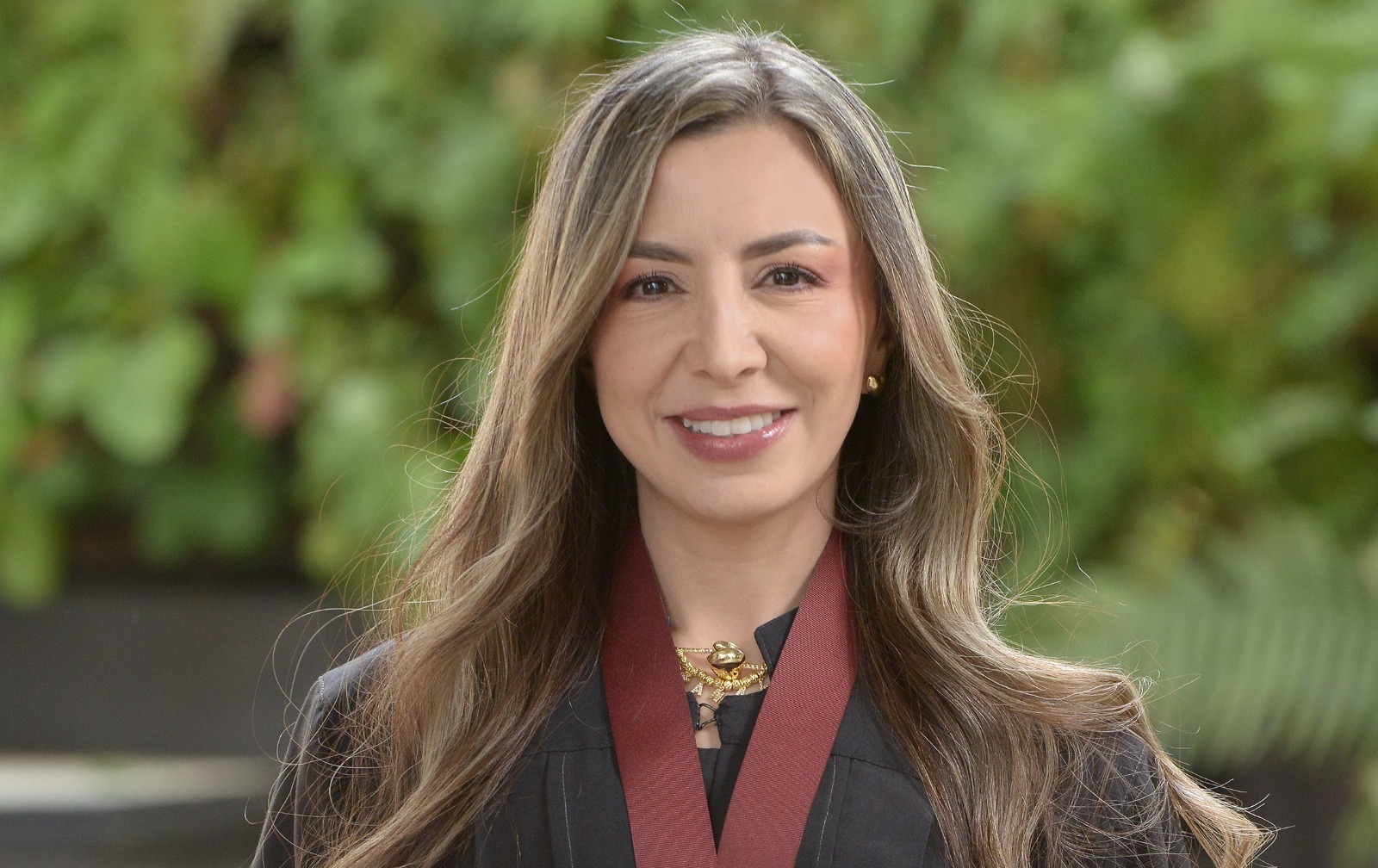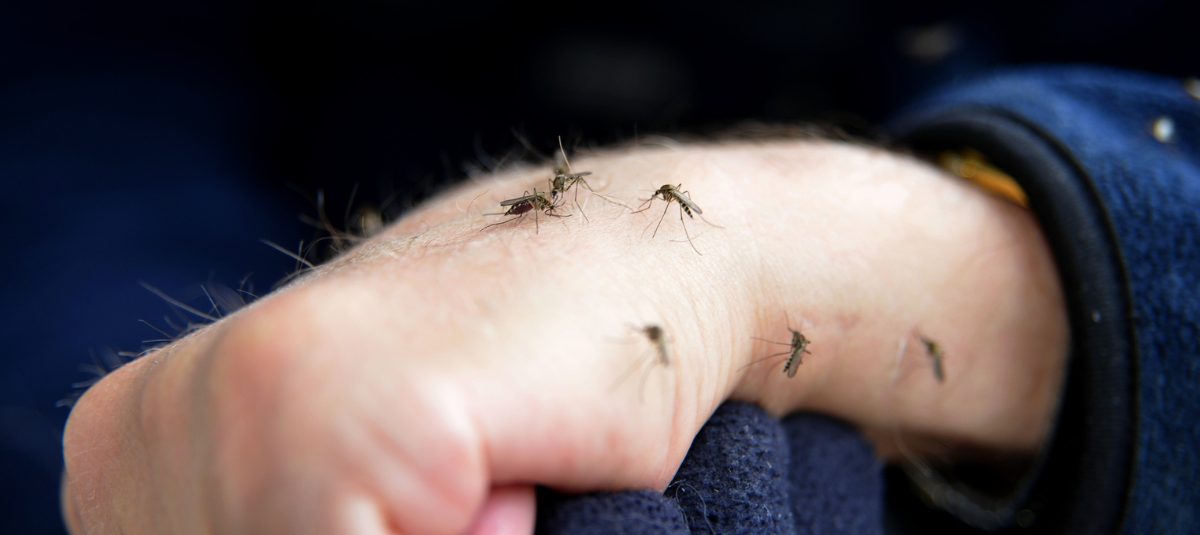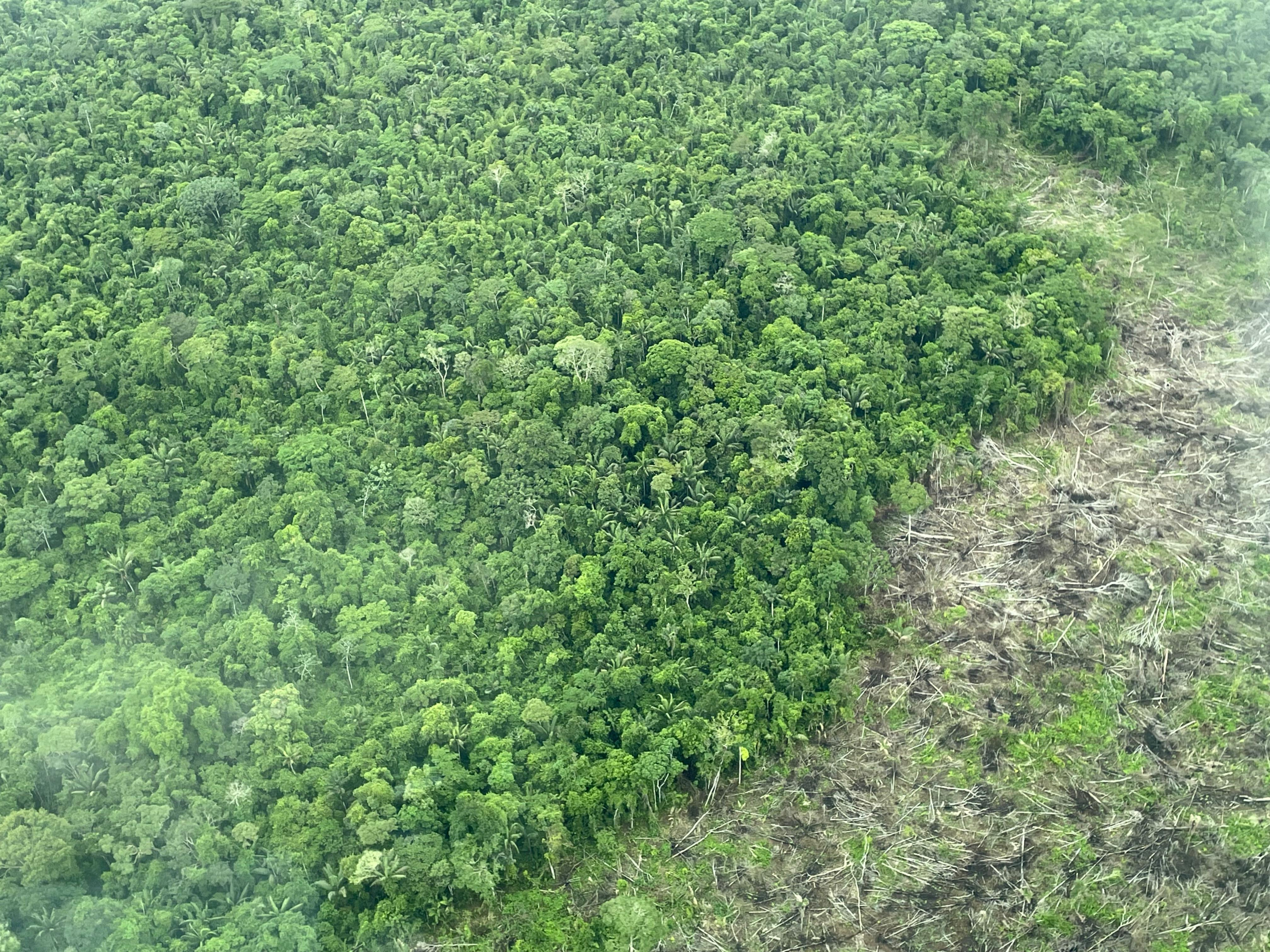Colombian scientist discovers 'good' viruses in Aedes aegypti mosquitoes that could prevent these insects from transmitting dengue and yellow fever.

What would happen if the same mosquito that transmits dengue or yellow fever also harbored viruses capable of blocking that transmission? That's what researcher Alida Marcela Gómez, Ph.D. in Biomedical and Biological Sciences from the Universidad del Rosario and professor at the Universidad de Boyacá, discovered. This discovery could change the traditional approach to public health in Colombia and around the world.
Using metagenomic (next-generation sequencing) and bioinformatics, Gómez analyzed the Aedes aegypti mosquito, which spreads diseases such as dengue, yellow fever, Zika, and chikungunya. By studying this insect's virome (the set of viruses found in a specific organism or ecosystem, including those that cause disease and those that do not), she discovered a surprising diversity of previously unknown viruses, called ISVs or insect-specific viruses, which do not affect humans but could be used to interfere with the mosquito's ability to transmit dangerous viruses.
These analyses, carried out by the Center for Research in Microbiology and Biotechnology-UR (CIMBIUR) at the Universidad del Rosario, suggest that ISVs could "block" dengue within the mosquito. "It's as if the mosquito had 'good' viruses that could help us stop the 'bad' viruses. If we understand how this interaction works, we could develop new forms of biological control for epidemics," Gómez explained.

Alida Marcela Gómez, researcher in Biomedical and Biological Sciences at the University of Rosario. Photo: University of Rosario.
According to the National Institute of Health's (INS) Weekly Epidemiological Bulletin No. 27, the cumulative number of dengue cases in the country amounts to 87,447, with 56 confirmed fatal cases in 2025. This analysis also indicates that the yellow fever outbreak, between 2024 and 2025, recorded 119 cases and 51 deaths.
Modifying the mosquito virome to block disease transmission Although research is ongoing, the scientist explains that there are several hypotheses about how ISVs act: First, competition within the insect, given that ISVs occupy cellular space or activate the mosquito's defenses that hinder the entry or reproduction of other viruses; second, direct viral interference, as some ISVs produce proteins that inhibit the replication of human viruses; and third, immune modulation, as ISVs can stimulate the mosquito's natural defenses, making it less capable of transporting pathogenic viruses.
This approach opens up a field that suggests that, instead of exterminating the mosquito, its natural virome could be modified or enhanced to block disease transmission. Until now, epidemiological surveillance systems in Colombia have focused almost exclusively on humans, reacting when outbreaks are already underway. But this research proposes anticipating this by observing what happens in mosquitoes before the virus reaches people.
“Outbreaks begin long before a patient is in the hospital. They begin in the environment, in mosquitoes. And that's where we need to look,” says the researcher at the Universidad del Rosario and professor at the Universidad de Boyacá. This approach, known as entomovirological surveillance, allows us to study the entire viral ecosystem from a preventive, ecological, and territorial perspective.

The research team collected mosquitoes from the Caribbean, Andean, Orinoco, and Amazon regions. Photo: iStock
During the study, the research team collected mosquitoes in regions as diverse as the Caribbean, Andean, Orinoco, and Amazon. The virome was very different in rural and urban areas of each territory, demonstrating that the environment, from climate to mosquito diet, modifies viral ecology. In the Orinoco region, for example, the circulation of the West Nile virus (WNV), a poorly monitored virus that can cause severe neurological disease in humans, was even detected.
Furthermore, genomic sequencing revealed that some of the ISVs found in Colombia have high genetic similarity with viruses reported in Brazil, Guadeloupe, and other tropical regions. This points to a phenomenon of viral globalization, which depends not only on human travel but also on ecosystems, animal migration, and climate change. “Viruses don't respect borders. What circulates in a rainforest in Vichada could be connected to an outbreak in the Brazilian Amazon or the Caribbean,” warns Gómez.

Factors such as deforestation and rising temperatures are driving these diseases. Photo: Edwin Caicedo. EL TIEMPO
In a country with profound inequalities in access to healthcare, this research warns that many regions are off the epidemiological radar. Rural populations, without laboratories or active surveillance, are the most vulnerable to outbreaks that could have been detected earlier. Therefore, the researcher insists that effective public health must begin on the ground, not just in the hospital.
“Improving public health through the mosquito is also doing it through the territory. Each sampling point was a space for meeting local leaders, communities, and invisible realities,” the expert stated.
Ecological, preventive, decentralized and deeply human public health This study, titled "Arboviruses of Public Health Importance and the Virome of Mosquitoes in Colombia: A Metagenomic Approach," represents a paradigm shift in how we understand the transmission of infectious diseases. Instead of thinking of mosquitoes solely as vehicles of transmission, Alida Marcela Gómez proposes them as complex viral ecosystems, capable of modulating and, perhaps, interrupting the transmission of human viruses.
"We need a public health system that is as complex as the problems we face: ecological, preventative, decentralized, and profoundly human," the researcher concludes. With this approach, Colombia not only joins the global scientific vanguard, but also demonstrates that it is possible to produce cutting-edge science from its own territories, with its own questions, and to solve its own challenges.
Environment and Health Journalist
eltiempo

%3Aformat(jpg)%3Aquality(99)%3Awatermark(f.elconfidencial.com%2Ffile%2Fa73%2Ff85%2Fd17%2Fa73f85d17f0b2300eddff0d114d4ab10.png%2C0%2C275%2C1)%2Ff.elconfidencial.com%2Foriginal%2Fea1%2F8d5%2F41a%2Fea18d541af07b8762984243f8e369564.jpg&w=1280&q=100)
%3Aformat(jpg)%3Aquality(99)%3Awatermark(f.elconfidencial.com%2Ffile%2Fbae%2Feea%2Ffde%2Fbaeeeafde1b3229287b0c008f7602058.png%2C0%2C275%2C1)%2Ff.elconfidencial.com%2Foriginal%2F11f%2Fffc%2F873%2F11fffc873e45e64fd33eb3f70a1bb0d7.jpg&w=1280&q=100)


